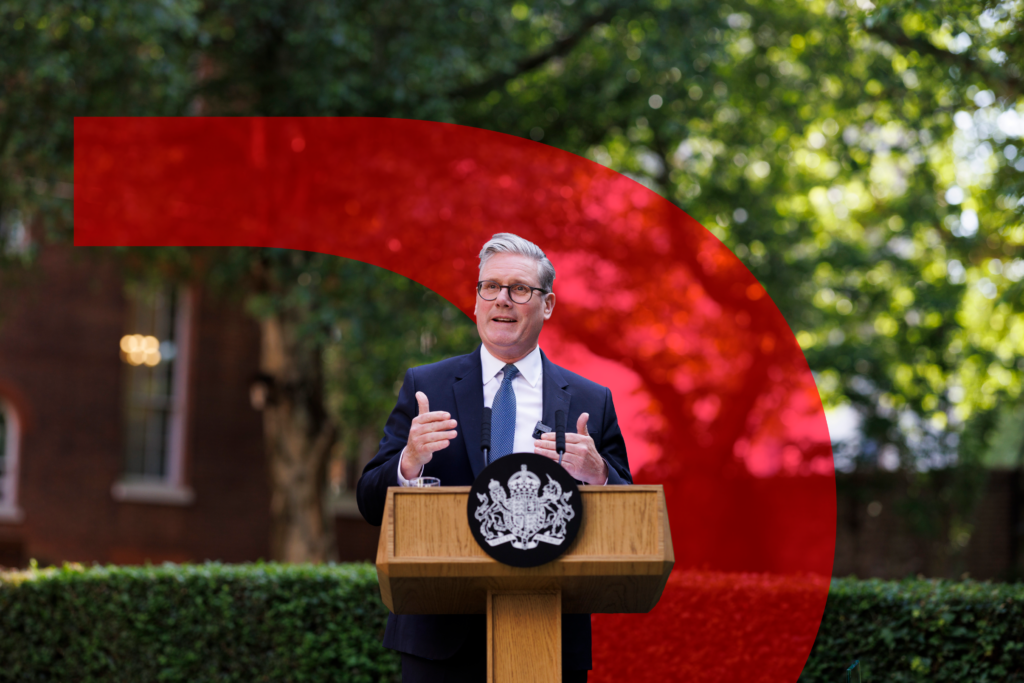The decision to leave the European Union is the bravest act of the British people since World War Two, and it strikes a blow for our own freedom and that of fellow Europeans. It is fundamentally pro-European, because what Europeans need is freedom, not government by a transnational elite which is unelected and unaccountable.
It is a pity that our country has stumbled into this role after the plans of David Cameron and the British establishment were overturned in the referendum. It would have been much better had a Prime Minister proposed Brexit and won the people’s backing. The British state was caught off guard, and has floundered without dignity in the months since. But that should not deflect us from celebrating what we have decided to do.
The European Union is an ideological project, dedicated to the creation of a European state. Its authors claim to be operating from the purest of motives: the avoidance of another war in our continent. Perhaps.
What is certain is that whilst the Union is composed of democracies, it is not a democracy itself.
The democratic deficit is acknowledged by all, but it has no solution, because there does not exist a European people, sharing specific political values, that can be governed in common, with the governors accountable to the people. The EU’s authors shrug off this fundamental point.
The creation of the euro has amply illustrated the danger of ideology. It tramples all who get in its way.
The single currency was created because it is one of the signifiers of a single state. But most of the economies of Europe were not ready for an exchange rate largely determined by the strength of the German economy. It has been their ruin. Greece has been crushed and youth unemployment has reached appalling levels in Spain and Italy. How ironic that in the UK young people were disproportionately in favour of remaining.
The fact that Britain joined neither the euro nor the Schengen area (within which people circulate between countries without showing identification) illustrates that this country has never been comfortable with the EU. Politicians, both Conservative and Labour, held apart from the vital building blocks of the European state. As each new European treaty was drawn up we showed extreme reluctance to be drawn towards ‘ever closer European union’. All that helps to explain why Britain voted to leave.
Even the politicians who argued for Remain were mostly sceptical of, or hostile to, the European project.
Even amongst business leaders, who clamoured a decade ago to join the euro, scarcely one was willing to make that call again.
The euro is unsustainable. It has impoverished the weaker nations, and lurches from crisis to crisis.
The continental establishment is too frightened to wind it up (or to let go any of its members), and German exporters benefit from using a currency that is weaker than the deutschmark would be. For all the time that the euro is kept alive, the euro area will underperform economically and human misery will be sustained. Richer EU countries will have to absorb unemployed people from the poorer ones. On the other hand, if the currency collapses, the crash may bring down the EU. Britain is better off keeping its distance from each of those catastrophes.
So Britain is doing the right thing. As Lord King of Lothbury (former governor of the Bank of England) put it, our exit is not going to be a bed of roses.
It may indeed be quite unpleasant. But we will avoid the worst of what may befall the EU and we will recover the right to govern ourselves.
A symbol of that will be the right to control our borders. Immigration is not an issue that bothers the well off very much. But those who seek accommodation, school places, doctors’ appointments and jobs feel affected by it. As the population has swelled, British governments have not poured extra money into housing and public services. The mass unemployment created by the euro has led more EU citizens to move here, attracted by a minimum wage that has risen and is due to rise more.
Of course, France, Germany and other prosperous EU countries feel the strain of immigration as much as Britain. Southern European countries are under enormous pressure from migration across the Mediterranean Sea.
Although we are told that free movement of peoples is fundamental to the European project, will it survive the refugee, unemployment and euro crises?
Those thoughts suggest two others. First, that from the viewpoint of our EU partners, whilst the British decision to leave has shaken them to the core, the euro and migration pose existential threats to the union. Second, that the Article 50 negotiations will take place during dynamic developments on the continent, as François Fillon and Angela Merkel adjust their positions, attempting to win their elections, and as new currency, banking and refugee crises emerge.
If Marine Le Pen becomes French president, the EU will be on the brink of collapse and Brexit will seem a trivial issue.
Still, for now it is the British state that appears to be in crisis. It is not the one that was confidently predicted by the Treasury and the Bank of England. The British economy is doing well, and the pound against the euro is back to exchange rates typical of the last few years. The crisis is one of decision-making. It is partly because Theresa May is by nature slow to make up her mind, and partly because the whole government machine is ill-equipped to deal with Brexit. This was not planned for, and the civil servants now asked to devise a strategy are ideologically committed to continued EU membership. They are the very establishment rejected in the referendum, the elite that embedded Britain in the EU over the last fifty years.
Neither of those issues is easy to resolve. But it is worth noting that the government’s single bold move – to force a parliamentary vote before Christmas on triggering Article 50 – resulted in a massive majority, and should have emboldened it.
When it comes to the Article 50 legislation, in the House of Commons Theresa May can count on the votes of most Labour MPs, many of whom fear Ukip in their constituencies where a majority voted for Brexit.
The Lords are more complicated because they are more independent and do not face reelection. But both Conservative and Labour whips are likely to be hard at work. The House of Lords should not want to provoke a constitutional crisis that might result in the creation of sufficient new Tory peers to prevail, and the Labour Party does not want an early general election.
Theresa May’s Lancaster House speech provided some clarity on the government’s preferred outcome. She would like to leave the single market, half-leave the customs union, and reach a new free trade agreement with the EU. All this to be agreed in two years, with the threat of defaulting to WTO rules if there is no good deal on the table.
Whether these goals are achievable depends on whether the EU partners want to erect barriers which would harm them more than Britain, since we run a trade deficit with our partners, especially Germany.
There are perhaps two ‘parties’ at present within the EU. A Scandinavian group favours the most pleasant and soft Brexit achievable, to avoid rocking the boat. A French party wants to castigate Britain with the harshest terms. Germany is the floating voter. It has much to lose from barriers to trade, but must act in the ‘interests of Europe’, which according to the French – at least for now – means being mean to the UK.
Frankfurt and Paris may demand particular toughness against the City of London. Even before Brexit they aimed to shift financial business to the continent (outraged that that did not happen when Britain stayed outside the Euro). Some financial institutions talk of moving jobs out of London. But the continental markets are very small on the world stage, and French labour laws are unattractive. American banks demonstrate that you can do good business in continental Europe without the advantage of EU membership.
A farce lies ahead: two years of negotiation between British officials, who don’t believe in Brexit, and European Commission officials, who are fanatics.
Of course, those talks will not produce a result. The EU officials report back to the Council of Ministers, and I would guess that in the final moments of the two-year process a political deal will be done. Its nature will depend on whether Merkel and Fillon are in office, and on whether the EU is at that moment convulsed with new crises.
By Rt. Hon. Michael Portillo






